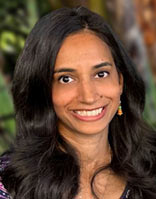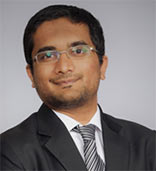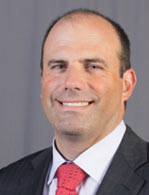Apr
26

Date: 26 April 2023
Time: 11:00 AM ET (New York Time)
Presenter(s): Dr. Preeti Kumari, Dr. Nitin Jonathan Myers, Dr. Robert W. Heath, Jr.
SPS Webinar
Abstract
Millimeter-wave (mmWave) joint communication-radar (JCR) will enable high data rate communication and high-resolution radar sensing for applications such as autonomous driving. Existing mmWave JCR systems, however, suffer from a limited angular field-of-view and low estimation accuracy for radars due to the use of directional communication beams. In this paper, we propose an adaptive beamforming design for mmWave JCR with a phased-array architecture that permits a trade-off between communication and radar performances. To enable fast estimation of the mmWave radar channel in the Doppler-angle domain, we use a convolutional compressed sensing framework and optimize the radar waveforms within this framework. Our optimization accounts for the space-time sampling constraints that are specific to phased-array radars. We evaluate the JCR performance trade-offs using a normalized mean square error (MSE) metric for radar estimation and a distortion MSE metric for data communication, which is analogous to the distortion metric in the rate-distortion theory. Numerical results demonstrate that our proposed JCR design enables the estimation of short- and medium-range radar channels in the Doppler-angle domain with a low normalized MSE, at the expense of a small degradation in the communication distortion MSE.
Presenter's Biography
 Preeti Kumari (Member, IEEE) received the B.Tech. degree in electronics and telecommunication engineering from the Shri Guru Gobind Singhji Institute of Engineering and Technology, Nanded, India, in 2009, and the M.S. and Ph.D. degrees in electrical and computer engineering from The University of Texas at Austin, Austin, TX, USA, in 2016 and 2020, respectively.
Preeti Kumari (Member, IEEE) received the B.Tech. degree in electronics and telecommunication engineering from the Shri Guru Gobind Singhji Institute of Engineering and Technology, Nanded, India, in 2009, and the M.S. and Ph.D. degrees in electrical and computer engineering from The University of Texas at Austin, Austin, TX, USA, in 2016 and 2020, respectively.
She is currently a Senior Engineer with Qualcomm, San Diego, CA, USA. During the summer of 2018, 2016, and 2015, she was an Intern with Qualcomm, San Diego, CA, USA, Intel Labs, Hillsboro, OR, USA, and National Instruments, Austin, TX, USA. From 2009 to 2013, she was a Scientist with Indian Space Research Organization, Ahmedabad, India. Her research interests include system design, signal processing applications, and hardware implementation aspects of radars, wireless communications, and joint communication-radar.
Dr. Kumari received the 2022 Best Vehicular Electronics Paper Award from the IEEE Vehicular Technology Society. One of her papers was among top 5 nominees for the Best Student Paper Award in the 14th European Conference on Antennas and Propagation, Denmark. She has served as a Technical Program Committee (TPC) Member for IEEE Wireless Communications and Networking Conference (WCNC) as well as for IEEE International Conference on Communications (ICC).
 Nitin Jonathan Myers (S'17-M'20) received the B.Tech. and the M.Tech. degrees in electrical engineering from the Indian Institute of Technology (IIT) Madras, India in 2016 and his Ph.D. in electrical and computer engineering (ECE) from The University of Texas at Austin (UT Austin), Austin, TX, USA, in 2020.
Nitin Jonathan Myers (S'17-M'20) received the B.Tech. and the M.Tech. degrees in electrical engineering from the Indian Institute of Technology (IIT) Madras, India in 2016 and his Ph.D. in electrical and computer engineering (ECE) from The University of Texas at Austin (UT Austin), Austin, TX, USA, in 2020.
He is currently an Assistant Professor at Delft University of Technology (TU Delft) in the Delft Center for Systems and Control. From 2020 to 2021, he was a Senior Engineer with 5G Modem Research and Development Team at Samsung Semiconductor Inc., San Diego, CA, USA. His research interests include optimization and multi-dimensional signal processing with applications to communications and sensing.
Dr. Myers received the DAAD WISE Scholarship in 2014 and a Silver Medal, Institute Merit Prize in 2016 during his undergraduate study. At UT Austin, he was a recipient of the University Graduate Continuing Fellowship 2019–2020, the ECE Research Awards in 2018 and 2019, from the Cockrell School of Engineering. He was recognized as an Exemplary Reviewer by the IEEE Transactions on Communications in 2019 and the IEEE Wireless Communications Letters in 2018. His research has won the Best Student Paper Award at IEEE SPAWC 2022 and the finalist in IEEE ICASSP 2020 video contest. Most recently, TU Delft recognized him as the Best Lecturer in the 2nd year of the bachelor’s program in Mechanical Engineering (2021-2022).
 Robert W. Heath, Jr. (S'96-M'01-SM'06-F'11) received the B.S. and M.S. degrees from the University of Virginia, Charlottesville, VA, in 1996 and 1997 respectively, and the Ph.D. from Stanford University, Stanford, CA, in 2002, all in electrical engineering.
Robert W. Heath, Jr. (S'96-M'01-SM'06-F'11) received the B.S. and M.S. degrees from the University of Virginia, Charlottesville, VA, in 1996 and 1997 respectively, and the Ph.D. from Stanford University, Stanford, CA, in 2002, all in electrical engineering.
From 1998 to 2001, he was a Senior Member of the Technical Staff then a Senior Consultant at Iospan Wireless Inc, San Jose, CA where he worked on the design and implementation of the physical and link layers of the first commercial MIMO-OFDM communication system. He is a Distinguished Professor at North Carolina State University. From 2002-2020 he was with The University of Texas at Austin, most recently as Cockrell Family Regents Chair in Engineering and Director of UT SAVES. He is also President and CEO of MIMO Wireless Inc. He authored Introduction to Wireless Digital Communication (Prentice Hall, 2017) and Digital Wireless Communication: Physical Layer Exploration Lab Using the NI USRP (National Technology and Science Press, 2012), and co-authored Millimeter Wave Wireless Communications (Prentice Hall, 2014) and Foundations of MIMO Communication (Cambridge University Press, 2018). He is the past Editor-in-Chief of IEEE Signal Processing Magazine and is a member-at-large of the IEEE Communications Society Board of Governors.
Dr. Heath has been a co-author of a number award winning conference and journal papers including recently the 2016 IEEE Communications Society Fred W. Ellersick Prize, the 2016 IEEE Communications and Information Theory Societies Joint Paper Award, the 2017 Marconi Prize Paper Award, and the 2019 IEEE Communications Society Stephen O. Rice Prize. He received the 2017 EURASIP Technical Achievement award and the 2019 IEEE Kiyo Tomiyasu Award. He was a distinguished lecturer and member of the Board of Governors in the IEEE Signal Processing Society. In 2017, he was selected as a Fellow of the National Academy of Inventors. He is also a licensed Amateur Radio Operator, a Private Pilot and a registered Professional Engineer in Texas.
